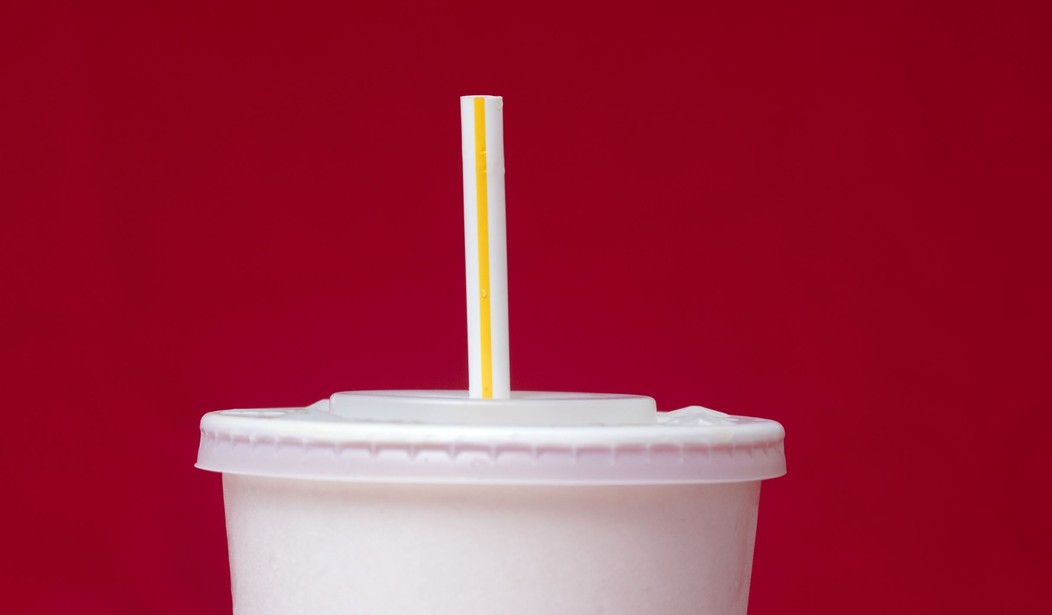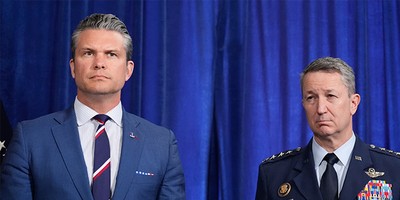Want to sip a refreshing beverage this summer?
If environmental zealots and sycophants get their way, you won’t be allowed to sip it through a plastic straw.
Actress Nina Nelson and other celebrities made a video claiming that plastic straws kill sea life: “In the USA alone, over 500 million straws are being used every single day, most of which are going into our oceans.”
“I will stop sucking,” vowed the celebrities.
In obedient response, Seattle banned plastic straws, and other places plan to follow. Starbucks, Hyatt and Hilton are all abandoning straws.
Katy Tang, of San Francisco’s Board of Supervisors, says, “We are no longer going to allow for plastic straws here.”
New York City Mayor Bill de Blasio agrees: “Their time has come and gone.”
But before politicians ban things in the name of saving the world, I wish they’d take the trouble to actually study what good the ban would do.
Plastic garbage in oceans is a genuine problem. But most of the pollution comes from Asia. A small amount does come from America, but only a tiny fraction of that is plastic straws.
Banning straws “might make some politicians feel good,” says the Competitive Enterprise Institute’s Angela Logomasini in this week’s Stossel TV video, “but it won’t actually accomplish anything good.”
But what about that scary “500 million” figure that celebrities, politicians and news anchors constantly cite? It turns out that number came from a 10-year-old who, for a school project, telephoned some straw makers.
Because the boy is cute, the media put him on TV. Now the media, environmental activists and politicians (Is there a difference?) repeat “500 million straws used daily … many end up in oceans,” as if it were just fact. The real number is much lower.
Recommended
Still, activists like talk show host Ethan Bearman tell us, “If we can reduce something that easy -- something that gets stuck in turtles’ noses and damages the environment -- let’s do that. Sometimes, we do need a little gentle guiding hand from government.”
But government’s guiding hand is neither “little” nor “gentle.” Government action is force. In this case, the politicians will either ban straws or order us to replace plastic straws with more expensive ones made of paper or bamboo.
Bearman calls that an advantage, telling us, “Plastic doesn’t actually biodegrade, unlike paper, which breaks down into other components.”
But that’s exactly the problem. Paper straws don’t only break down in dumps, they also break down while you’re using them. They get soggy. They leak.
“That’s the beauty of plastic. It’s enduring,” says Logomasini.
She also points out that paper and bamboo straws aren’t environmentally pristine. “Paper products take more energy and effort to produce. And paper doesn’t degrade in a landfill, either. Everything (in landfills) is essentially mummified.”
Also, paper straws cost eight times more to make than plastic straws.
The activists and politicians don’t worry that their ban will raise costs for businesses and their customers. New York City Councilman Barry Grodenchik told us, “Maybe people won’t use straws.”
Ethan Bearman added, “If it’s $1.79 to get the fountain drink at Joe’s Corner Deli (and) now it’s $1.83, I don’t see that being a huge difference.”
“This is what environmentalists say about every policy they put out -- a few cents here, a few cents there,” says Logomasini. “But eventually, it begins to be a burden. Banning straws isn't going to do anything for the environment. So what they're trying to do is take away my freedom for nothing in return.”
Taking away freedom for nothing in return is now a specialty of the environmental movement.
After our environment got cleaner -- thanks to technological innovation and some useful government-imposed requirements (like scrubbers in smokestacks and pollution limits on cars) -- the zealots moved on to demand bans on pipeline construction, mining and oil drilling. They require lots of pointless recycling (though often garbage you separate is never recycled) and all sorts of feel-good policies that make no real difference.
EPA should stand for “Enough Protection Already!”

























Join the conversation as a VIP Member